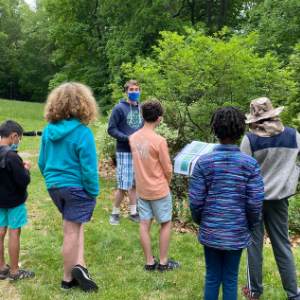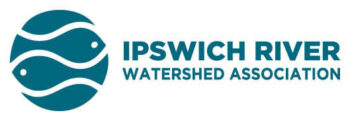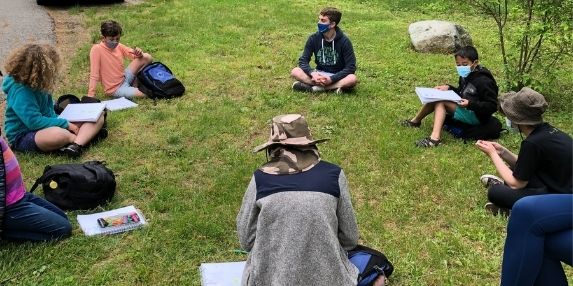Above Students from the Phoenix School learn about native plants and their importance for a healthy watershed and ecosystem. Summer Educator Jacob Garland (pictured below) is teaching the next generation how they can take part in watershed restoration through the Lawn by Lawn pledge all summer!
Growing up with an unwatered, untreated lawn, I’ve always been captivated by the critters that take residence within it. I’ve spent hours kneeling down next to patches of wildflowers to watch as the honeybees go about their work. They’re diligent little guys!
But many of these beautiful creatures are rarely seen near homes in Massachusetts. The common use of non-native, water-sucking grass, combined with overwatering and pesticide application, have certainly done well to create uniform facades. But those facades lack resiliency. They bleed money. Really, they’re more trouble than they’re worth. And of course, the bumblebees, bunnies, and songbirds that I was so privileged to enjoy are nowhere to be found.
And there’s no denying the damage these practices have done to the Ipswich River. Recently declared one of the most endangered rivers in the country, our Ipswich has experienced two major droughts in the last five years with whole sections of the river running completely dry.

This increasingly worrying trend can and will be reversed, provided we start thinking more critically about our lawns: is it worth spending hundreds or thousands of dollars to create a lawn that, after a few days of drought, will turn brown in a flash? Is it worth draining our Ipswich to feed water-hungry, non-native plants? And, most importantly, is it worth cutting off your family from the beauty nature has to offer in order to produce what has quickly become an outdated standard of beauty?
If you agree that the answer is no — and you’re ready for a truly beautiful lawn — I urge you to take the Lawn by Lawn pledge. Participants commit to:
- Not water their grass (water only needs 1 inch of water per week, and actually grows weaker from constant watering)
- Only hand-water gardens, shrubs, and trees (watering deeply by hand encourages the production of stronger, deeper roots)
- And cut out chemical use on their landscape and opt only for natural alternatives (this goes far in producing a wildlife oasis for both our environment and your family)
All that’s needed to save our Ipswich River is a little less work, a little less time, and a little less money spent by us. If that’s not a win-win situation, then I’m not sure what is. So click here and take the pledge today!
Oh, and keep an eye out for those bumblebees. You won’t regret it!
Jacob Garland
Kerry Mackin Summer Educator
Ipswich River Watershed Association

